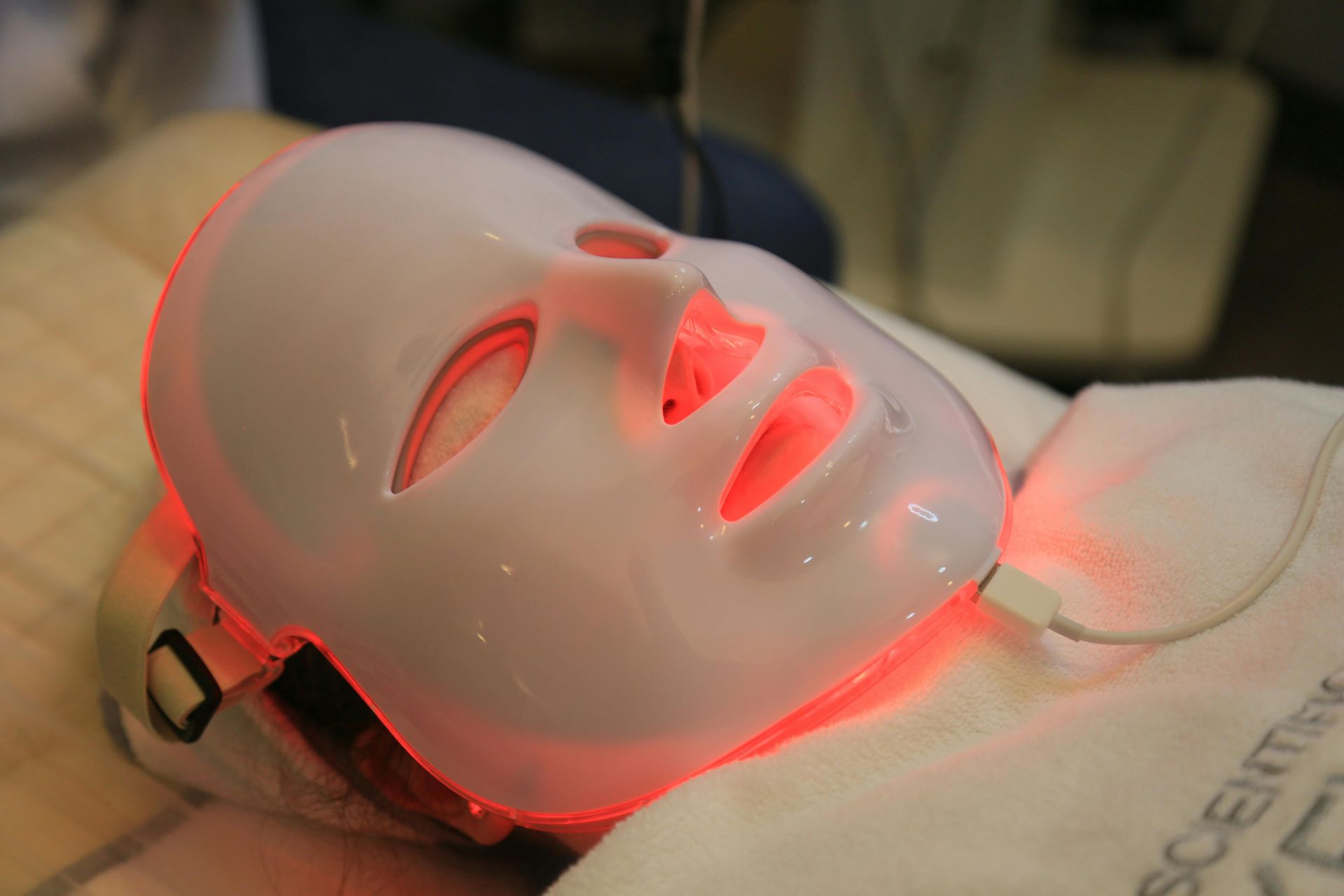The Gut-Menopause Connection: A Guide to Gut Health and Hormonal Changes

Menopause is the natural biological process marking the end of a woman's menstrual cycles, typically occurring around the age of 51 in the United States. The years leading up to menopause, known as the menopause transition or perimenopause, can last about seven years and are characterized by fluctuating hormone levels, leading to common symptoms like hot flashes, night sweats, mood swings, and sleep problems, and then there are the less commonly talked about symptoms related to the hormonal fluctuations, such as gastrointestinal complaints.
The digestive system is responsible for breaking down the food you eat, absorbing the nutrients, and eliminating waste. It's a complex system that relies on a delicate balance of hormones, stomach acid, and gut bacteria to function properly.
The gut microbiome refers to the trillions of bacteria, fungi, and other microbes residing in the intestines, playing a crucial role in maintaining overall health. This microbial community aids in digestion, supports the immune system, regulates hormones, and influences other various bodily functions.
During menopause, declining estrogen levels can disrupt this balance in a few key ways:
- Altered gut microbiome: Hormonal changes can impact the diversity of your gut bacteria. The estrogen-gut microbiome axis and estrogen-microbiota crosstalk have been extensively studied, highlighting the intricate relationship between hormones and the gut microbiome. Progesterone levels can also play a role in this hormonal-microbiota interaction. The post-menopausal decline in these hormones can negatively impact the beneficial gut bacteria and gut microbiome diversity leading to dysbiosis (imbalance of good and bad gut bacteria) contributing to symptoms, such as bloating, indigestion or heartburn, reflux, diarrhea, or constipation. Gut-related issues can actually begin during the perimenopausal years with the hormone fluctuations.
- Impaired estrogen metabolism: Your gut microbiome plays a crucial role in metabolizing estrogen. Disruptions here can lead to an imbalance of estrogen levels, which may contribute to weight gain during menopause. During menopause, a specialized group of bacteria in the gut known as the estrobolome, which aids in processing hormones like estrogen, becomes less active due to the decline in estrogen levels. This reduced activity can contribute to hormone-related conditions such as obesity, heart issues, and decreased bone strength. The estrobolome plays a vital role in maintaining estrogen balance in the body. Alterations in this estrobolome during menopause can disrupt estrogen levels, potentially leading to symptoms like fatigue, mood fluctuations, and weight fluctuations. On a more serious note, the estrobolome can influence the risk of hormone-related cancers like breast cancer. If the estrobolome has enzymes that increase the reabsorption of free estrogens, it can raise the total estrogen levels in the body, potentially raising the risk of breast cancer. Factors such as age, ethnicity, diet, alcohol intake, and antibiotic use can impact the estrobolome's composition, affecting estrogen levels and cancer risk. Therefore, maintaining a healthy estrobolome is crucial for lowering the chances of hormone-related diseases such as breast cancer.
- Decreased stomach acid (HCl): Lower estrogen leads to reduced stomach acid production, which can impair your ability to properly digest foods and absorb important nutrients like iron, calcium, and vitamin B12. Stomach acid is important because it helps break down the food we eat and allows our bodies to absorb those essential nutrients. When there is not enough stomach acid, it becomes harder for the body to properly digest and absorb these vital nutrients. The decrease in estrogen during menopause can directly impact the cells in the stomach that produce hydrochloric acid (HCl). With lower estrogen levels, these cells are not able to make as much stomach acid as they did before. This can result in symptoms like indigestion, heartburn, and difficulty digesting certain foods.
- Changes in gut motility and food intolerance: When estrogen levels decline, it can slow down the movement of food through the digestive tract. This means food takes longer to pass through, which can lead to issues like constipation or bloating. The drop in estrogen can also make the gut more sensitive to certain foods. This means you may start to develop intolerances or have trouble digesting foods that you used to eat without any problems. Things like dairy, gluten, or spicy foods might become bothersome.
- Gallbladder problems: There can be an increased risk of gallstones and gallbladder disease due to hormonal changes. The gallbladder is a small organ that stores and concentrates bile, a fluid made by the liver that helps digest fats. During menopause, the drop in estrogen and progesterone hormones can cause the bile in the gallbladder to become more concentrated and sticky, which makes it harder for the gallbladder to function properly to release the bile, which can lead to the formation of gallstones. Gallstones are solid deposits that can block the gallbladder and cause pain, inflammation, and other problems. Many women develop gallbladder issues, like gallstones for the first time during the menopausal transition.
- Irritable Bowel Syndrome (IBS): During the menopausal transition there can be worsening of IBS symptoms due to hormonal fluctuations. IBS is a condition that causes stomach pain, bloating, diarrhea, and constipation. IBS is a condition that causes stomach pain, bloating, diarrhea, and constipation, and many people don't realize one of the underlying root causes is food allergies or more likely, food intolerances. Food intolerance occurs when the gut is abnormally sensitive and reacts to foods that trigger spasms and cause distenstion with gas or fluids. Well, in menopause, as mentioned above, the drop of estrogen and progesterone can make the gut more sensitive to certain foods contributing to IBS symptoms. Women with pre-existing IBS may find that their symptoms, like abdominal cramps and changes in bowel habits, become more frequent or severe during the menopausal transition.
The good news is there are evidence-based steps you can take to support your digestive health during this transition:
- Increase probiotic-rich foods like yogurt, kefir, kombucha, and fermented vegetables that contain live, beneficial bacteria that help replenish and diversify your gut microbiome.
- Consider taking a probiotic supplement if you cannot get enough probiotic-rich foods in. Your healthcare provider may be able to recommend a beneficial one during menopause.
- Consume prebiotic-rich and high-fiber foods, like fruits, vegetables, whole grains, and legumes. These "prebiotic" foods help feed the good bacteria in your gut, and maintaining a balanced, fiber-rich diet can help promote regular bowel movements, healthy digestion and estrogen metabolism.
- Eat a variety of different foods to encourage a diverse gut microbiome. Avoid relying too heavily on artificial sweeteners, which can disrupt gut bacteria. The Mediterranean is often recommended for its emphasis on whole, fresh foods.
- Consider supplementing with betaine HCl to help restore stomach acid levels and improve nutrient absorption.
- Manage stress through practices like meditation, yoga, or deep breathing, as chronic stress can negatively impact the gut-hormone connection.
- Consider keeping a food and symptom diary to identify triggering foods and patterns. By recording the foods you eat and the symptoms you experience, you can start to identify which foods may be triggering your IBS symptoms like bloating, gas, diarrhea, or constipation. Tracking the timing and severity of your symptoms can also help you spot patterns that may be related to your diet, stress levels, or other factors. Having a detailed record of your symptoms and how they are impacting your life quality can better communicate with your healthcare provider, lead to a more accurate diagnosis, and help guide treatment plans. I actually recommend that patients do the same thing with their menopausal symptoms.
- Maintaining a consistent sleep-wake cycle and supporting healthy circadian rhythms can help promote a diverse and balanced gut microbiome. Regular activity also positively impact gut composition and diversity. In addition, exercise can help enhance immune function and metabolic processes, which are closely linked to gut health!
By understanding the gut-hormone relationship and taking proactive steps, you can help ease some of the digestive challenges that can arise during menopause. Your body will thank you!
















